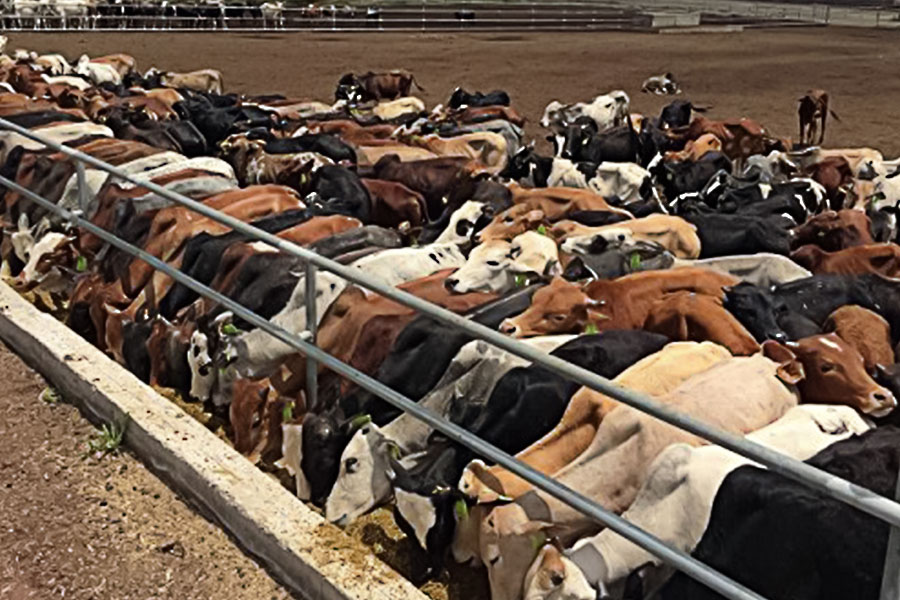
Fortune News | Sep 24,2022
The trope of attempts in the social media memes put a comedic spin presenting oil as a priceless household commodity and household dependence on it. It demonstrates a classic case of humour in the face of adversity. The posts poke fun at the volatile market for cooking oil, oily in recent weeks. Through irony, young consumers seem to have found a way to cope with the rising cost of living. Older generations, however, are less enthused.
Wude Adane, a mother of three in her 40s, wore a sour expression as she talked to a shopkeeper in the Amist Kilo area last week. Her elder son, a university student, shared some of these memes with her online. If they amused her, it did not show on her face.
Wude works as a secretary at a private college. She heard stories about a sudden spike in the price of edible oil from acquaintances. She wanted to drop by a store on her way home to see for herself. The first two had no oil on their shelves. Wude found a three-litre bottle of sunflower oil imported from Turkey in the third store she had checked on. The price? 580 Br.
Wude prefers to buy a five-litre bottle of the Omaar sunflower oil brand, enough to last her family of six a couple of weeks. Two weeks ago, her preferred brand cost 590 Br. Today, she would need to shell out nearly 1,000 Br for the oil.
“Imagine spending 2,000 Br a month on oil," Wude bemused.
She takes home a monthly salary of 6,000 Br. Her husband earns more working as a technician for the Ethiopian Electric Power (EEP). Worried that a few cooking oil bottles were left on the shelves would last no more than a day, Wude bought the three-litre bottle. She worries over what the future holds if the cost of living persists.
"We'll have to learn to use less while cooking,” Wude mumbled as she took out notes from her purse.
In an economy where wages are stagnant, and the army of the unemployed is going high, many are like Wude. They cut back on their consumption in the face of runaway prices galloping without offering respite for consumers, particularly in the fixed-income bracket. According to the Ethiopian Statistics Service, year-on-year headline inflation registered 33.6pc last month. Though it dropped by one percentage point from January 2022, it marks the seventh month in a row above the 30pc threshold.
Food inflation clocked in at a staggering 41.9pc, with cereals exhibiting the most worrisome rises. The doubling of prices for cooking oil seemingly overnight meant for consumers like Wude, prices are likely to go higher this month.
The edible oil market has been volatile, spiking on two occasions over the past year. Last May, the first price surge came around when a five-litre bottle suddenly jumped to 600 Br. Last week Wude and millions of consumers were surprised when prices jumped to around 1,000 Br.
The market remains heavily dependent on importing crude and processed oil to meet the kitchen demand estimated at 75 million litres a month. Over 410 million litres of refined and processed cooking oil was shipped in since last September at the cost of over 23 billion Br. Refined palm oil accounted for 35pc. Sunflower oil, like the Omaar brand Wude bought, comprises 43pc.
Smallholder farmers harvested around eight million quintals of oilseeds from 770,000hct of land last year. Sesame and niger seeds account for close to 60pc. In commercial farming, sesame made up over 95pc of the 2.43 million quintals produced, nearly all of it was destined for export.
For consumers like Wude, the price surge should be baffling considering that two industrial-scale edible oil processing plants were opened last year. A third inaugurated a large expansion, too.
Phibela, Worku Aytenew (W.A.), Shemu, Harmessa and Al-Impex are the five large-scale oil plants operating. Phibela and W.A. began production in the Amhara Regional State last year following investments of nearly 10 billion Br.
These plants have an aggregate capacity to bottle enough cooking oil to meet domestic demand. But, they struggle to cover a third of their potential due to a shortage of oilseeds and crude oil. No less disruptive is the erratic and often interrupted electric power. Phibela, under Belayneh Kindie Group (BKG), has a production capacity of 1.5 million litres a day, but its actual output is far below. Initially touted as a prime example of import substitution, the plant has itself become almost entirely dependent on imported crude palm oil.
According to Eniyew Wassie, chief executive officer (CEO) of Phibela Industrial Plc, this is not for lack of trying.
The Group has been attempting to grow oilseeds on 7,000ht of farmland it acquired two years ago in Guba, Benishangul-Gumuz Regional State. Eniyew says security concerns in the area, where Ethiopia builds its largest hydroelectric dam, remain a snag.
"The plans to farm in Guba have completely halted," he said.
The Group is also trying to farm oilseeds, including sesame, on leased farmlands in the Southern and Amhara regional states.
However, oilseed production has been falling, with smallholder farmers harvesting around eight million quintals from 770,000ht of land last year, nearly 10pc lower than the preceding year. Sesame and niger seeds dominate production, accounting for close to 60pc. Sesame made up over 95pc of the 2.43 million quintals of oilseeds produced on commercial farms last year. However, nearly all of it was destined for export.
Officials at the Ministry of Trade & Regional Integration blame low yields expected from oilseeds for the falls in productivity. Farmers can grow more than 30 quintals of cereals such as wheat on a hectare, compared to less than 10 quintals for oilseeds. Sesame, in particular, is labelled a "low volume, high value" oilseed due to the relatively low amounts of the oilseed needed to produce large volumes of oil.
Processing plants do not get sufficient seeds to crush as farmers generate higher income from other crops, according to Nigus Chernet, head of the team supervising the food and beverage industries at the Ministry.
Even if plants processed sesame into oil domestically, consumers would find it too expensive, sold for 300 Br a litre in the retail market. Available in the local market for 9,000 Br a quintal, sesame remains a cash crop earmarked for exports, accounting for nearly 10pc of the 3.6 billion dollars in export revenues last year.
Nigus disclosed there is an upcoming government policy encouraging the industrial processing plants to add value in exporting sesame oil. Officials are cooking up a scheme to push the plants such as W. A and Phibela to bottle sesame oil for the export market.
"The country could benefit a lot more if the sesame is exported as oil in the place of the seeds," said Negus.
The forex obtained from sesame oil exports would go towards procuring crude sunflower oil to be processed locally, he told Fortune.
The plan does not seem that different to what officials have been doing. The federal government buys large volumes of crude palm oil, mainly from Malaysia, and distributes it to industrial-scale processing plants. The Ministry of Trade imported 89,000tn of semi-processed palm and soybean oil over the last year, hoping to ease the shortage in the domestic market.
Mohammed Yusuf is a general manager of Addis Modjo Edible Oil Complex. He also serves the Ethiopian Edible Oil Manufacturer Industries' Association as a vice-chairperson.
The Association argues it would be more worthwhile to import oilseeds and process the raw materials locally rather than ship in crude oil.
A study conducted in partnership with the Ethiopian Food, Beverage & Pharmaceutical Industry Development Institute under the Trade Ministry proposes oilseeds like groundnut and sunflower be imported from countries like Sudan, South Africa and India. Importing crude oil may appear better than importing processed oil in cost and job creation, but Mohammed says importing the seeds would be the best option.
His company, Addis Modjo, runs one of the 232 small- and medium-size palm oil processing plants that source inputs domestically, accounting for 10pc of supply. In the midst of moving to Modjo town, 76Km southeast of the capital, the plant has been inactive for some time now. At its former plant near the Gottera area in Addis Abeba, the company could produce 50,000tn of cooking oil annually. Actual production, however, was limited to near 30,000tn of mostly niger and peanut oil. Addis Modjo could process crude oil, but over 70pc of its output comes from crushing seeds.
Mohammed disclosed that the plant in Modjo will have a production capacity no less than its plant in Addis Abeba. However, according to the General Manager, factory-gate prices will likely rise to 750 Br for five litres when it goes operational in three months. The last time they sold at their Addis Abeba plant, the price was 210 Br lower.
Over 30 private companies and five state-owned enterprises distribute the palm oil produced by these plants. Officials discourage them from using outlets other than these distributors who can only supply consumer cooperatives. It is a bargain the managers have made with the federal government for the preferential treatment they receive when importing inputs and raw materials.
This year, the federal government has earmarked 400 million dollars to import crude palm oil. The quota was set when prices for a tonne of crude oil were at 1,100 dollars, nearly double the going price from the previous year. Around 34,000tn of crude oil worth over 2.2 billion Br was imported since last September. Around 18pc came from Ukraine, a country at war after Russian forces invaded it last month.
Cooking oil is among the commodities that have seen prices surge since the war broke out. Last week, prices in the global market skyrocketed to nearly 2,000 dollars a tonne. Others include petroleum, wheat and fertiliser.
The forex the federal government has allocated would no longer suffice to cover import bills. Last September, the Trade Ministry had requested the National Macroeconomic Committee, chaired by the Prime Minister, to approve an additional 600 million dollars to import crude palm oil. The request was denied.
“As forex is limited, the higher the prices, the more the imports decline,” said Nigus.
The rapidly changing prices make it difficult to know how much crude oil the allocated funds can buy. Officials of the Ministry, who announced plans for the procurement of 40 million litres last week, have resorted to blaming escalating international prices, the shortfall in local supply, and scapegoating businesses for hoarding.
Experts like Kiflu Degefe (PhD), a macroeconomist working on trade policy, do not believe erecting huge edible oil plants before optimising oilseed productions is like putting the cart before the horse.
“It has to start somewhere, and starting from factories is good,” he said.
The economist observes the reverse situation (where oilseed farmers produce more than production capacity) would have been more disastrous for the economy. However, he cautions that officials should work on enhancing oilseed productivity.
Among the options available for officials is encouraging backwards integration between oil plants and farmers. A directive experts at the Ministry of Agriculture propose aspires to govern contract farming between oil producers and oilseed growers. It is determined to cut intermediaries out, increase pay for farmers, facilitate direct supply to oil plants, and implement cluster farming, Nigus disclosed.
However, Kiflu believes it would be wise to boost domestic production on all possible fronts, considering how quickly markets can change in the event of disruptions such as what is ensuing in Ukraine.
"The focus should be on domestic production and import substitution," he said.
These are lofty goals with no material for humour on social media memes. Neither are they low hanging fruit ready to offer a breather for millions of consumers like Wude.
PUBLISHED ON
Mar 12,2022 [ VOL
22 , NO
1141]

Fortune News | Sep 24,2022
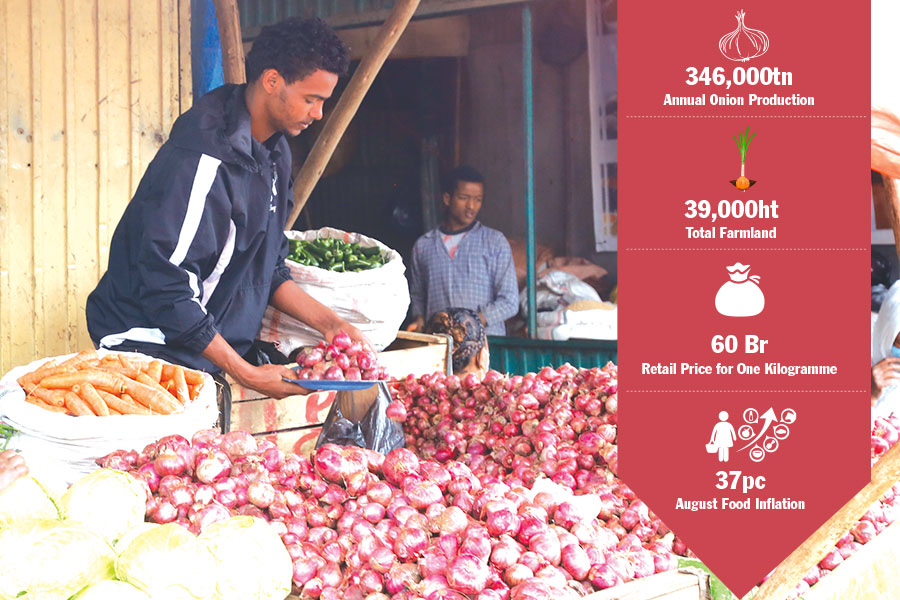
Fortune News | Sep 26,2021

Fortune News | May 31,2020
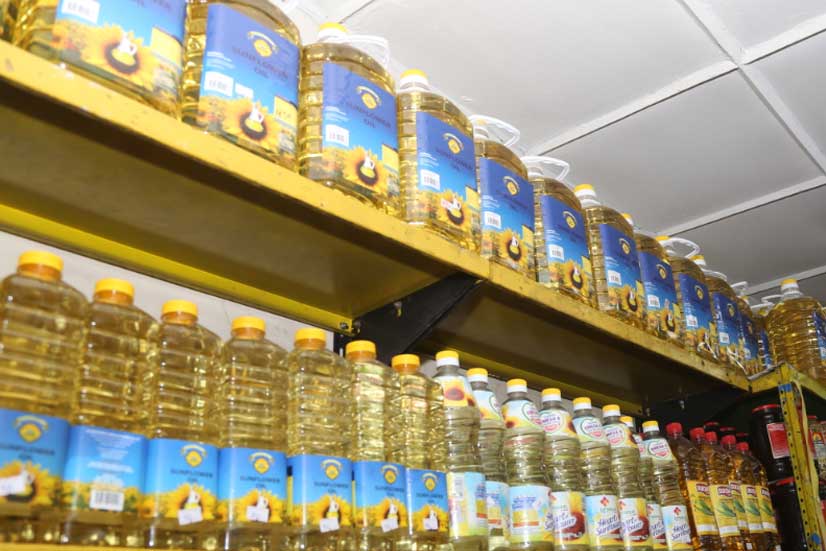
Fortune News | Dec 14,2019

Radar | Jun 12,2021

Fortune News | Jun 24,2023
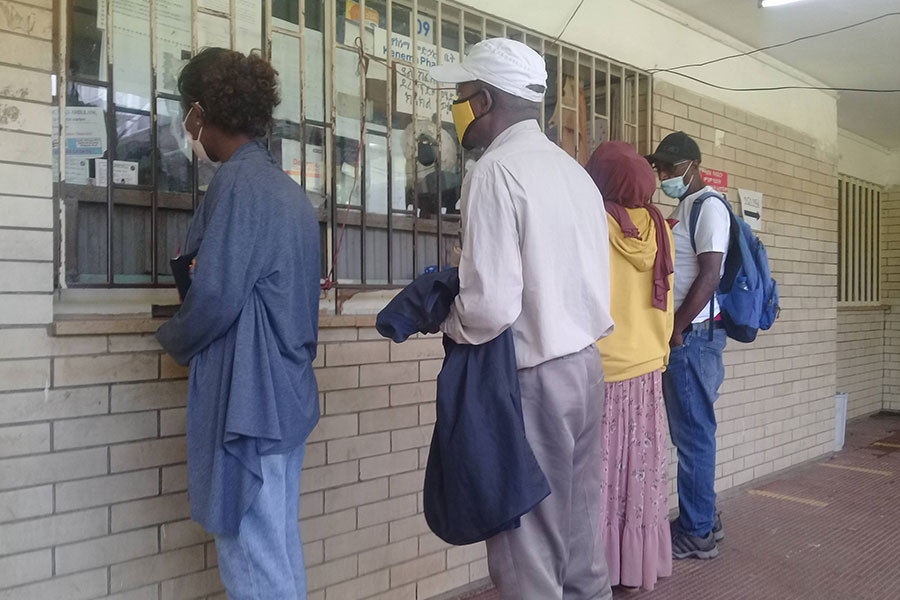
Agenda | Mar 26,2022

Radar | Sep 14,2019

Radar | Jul 13,2024
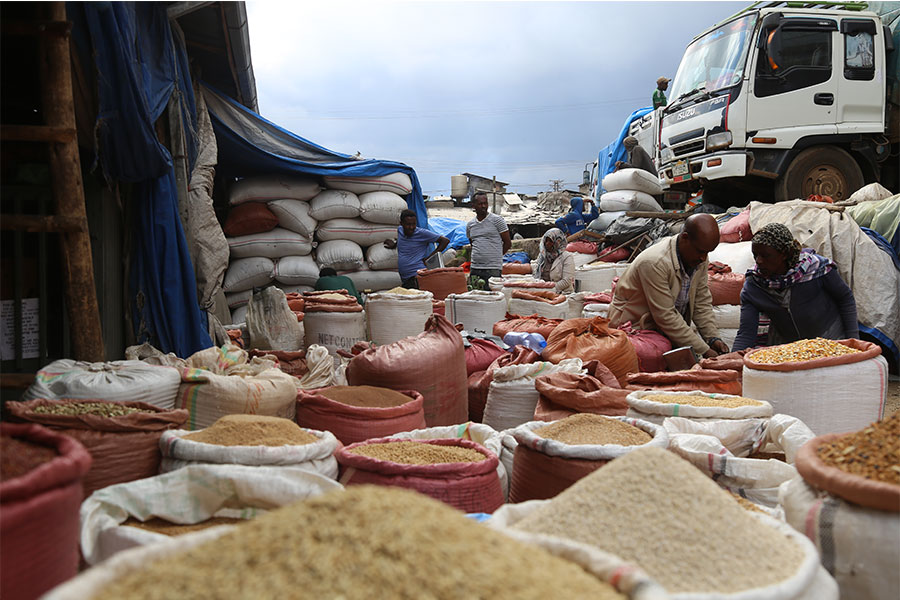
Featured | Jun 01,2019

Dec 22 , 2024 . By TIZITA SHEWAFERAW
Charged with transforming colossal state-owned enterprises into modern and competitiv...

Aug 18 , 2024 . By AKSAH ITALO
Although predictable Yonas Zerihun's job in the ride-hailing service is not immune to...

Jul 28 , 2024 . By TIZITA SHEWAFERAW
Unhabitual, perhaps too many, Samuel Gebreyohannes, 38, used to occasionally enjoy a couple of beers at breakfast. However, he recently swit...

Jul 13 , 2024 . By AKSAH ITALO
Investors who rely on tractors, trucks, and field vehicles for commuting, transporting commodities, and f...

Sep 13 , 2025
At its launch in Nairobi two years ago, the Africa Climate Summit was billed as the f...

Sep 6 , 2025
The dawn of a new year is more than a simple turning of the calendar. It is a moment...

Aug 30 , 2025
For Germans, Otto von Bismarck is first remembered as the architect of a unified nati...

Aug 23 , 2025
Banks have a new obsession. After decades chasing deposits and, more recently, digita...